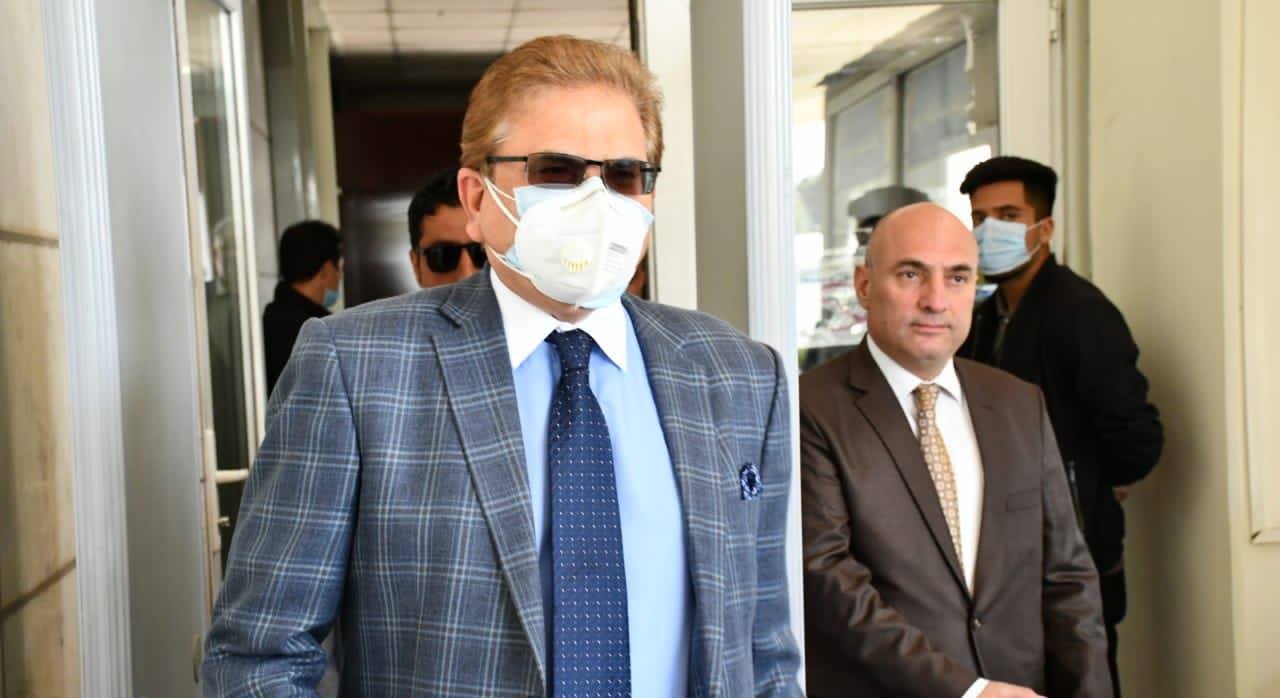Pakistan’s envoy Mohammad Sadiq, leading a delegation from Islamabad, has arrived in Kabul for discussions with Afghan leaders on peace, security and related matters, Pakistan’s ambassador to Kabul, Mansoor Ahmad Khan, confirmed on Twitter on Sunday.
Before the arrival of the delegation, National Security Adviser Hamdullah Mohib confirmed that a Pakistani delegation would visit Kabul to discuss relations between the two countries and current issues.
On Friday, the foreign ministers from Afghanistan, Turkey and Pakistan held a meeting in Istanbul in an effort to revive the Afghan peace process days after a key UN-led conference was postponed due to non-participation by the Taliban.
Turkey’s foreign ministry in a statement said that in their meeting Turkish Foreign Minister Mevlüt Çavuşoğlu, Afghan Foreign Minister Mohammad Haneef Atmar, and Pakistan Foreign Minister Makhdoom Shah Mahmood Qureshi reiterated their commitment to support a peaceful, sovereign, independent, democratic and unified Afghanistan.
The three ministers recognized that sustainable peace can be achieved only through an inclusive Afghan-led and Afghan-owned political process that aims for a permanent and comprehensive ceasefire along with an inclusive political settlement to end the conflict in Afghanistan.
They emphasized their support for the Afghanistan peace process and the ongoing Afghanistan peace negotiations in Doha for the achievement of a just and durable political settlement.
The foreign ministers recognized the efforts of Turkey, Qatar and the UN to hold a high-level meeting in İstanbul aimed at giving momentum to the ongoing Afghanistan Peace Negotiations.
They recalled that the Istanbul Conference had been postponed after extensive discussions with all relevant parties with a view to holding the conference when conditions for making meaningful progress would be more favorable, therefore called on all parties, in particular, the Taliban to reaffirm their commitment for achieving an inclusive negotiated settlement leading to lasting peace in Afghanistan desired by the Afghan people, the region and the international community.
The ministers condemned the ongoing high level of violence in Afghanistan, especially regretted the high number of civilian casualties and particularly condemned attacks targeting civil service employees, civil society activists, human rights defenders, journalists and media workers.
They emphasized the urgent need for an immediate ceasefire both to end the existing high level of violence and to provide a conducive atmosphere for the peace talks.
They recognized the importance of the Heart of Asia-Istanbul Process (HoA-IP) as a substantial platform that contributes to regional stability in fields ranging from political and security cooperation to economic integration.
The ministers reiterated their common resolve to combat terrorism in all its forms and manifestations.
They acknowledged the role of the regional and neighboring countries, in particular, Pakistan and Iran in hosting Afghan refugees for more than four decades and called for creating conducive conditions in Afghanistan for their voluntary, safe, dignified, expeditious and sustainable repatriation through a well-resourced plan.
Sources close to the Taliban said the top leadership from the group continues their discussions about participation at the Turkey summit; however, these sources revealed that the Taliban leaders have so far not managed to reach a final conclusion about whether to attend the conference that has been scheduled for after Eid-al-Fitr.
Expectations from Pakistan increased a day after reports surfaced in media that the Taliban’s chief negotiator Mawlavi Abdul Hakim has traveled to Pakistan from Doha to consult and seek guidance from the group’s leadership and find out whether the delay in the withdrawal of US forces will lead to a halt in the talks and Istanbul conference, or if there are other ways to proceed.













